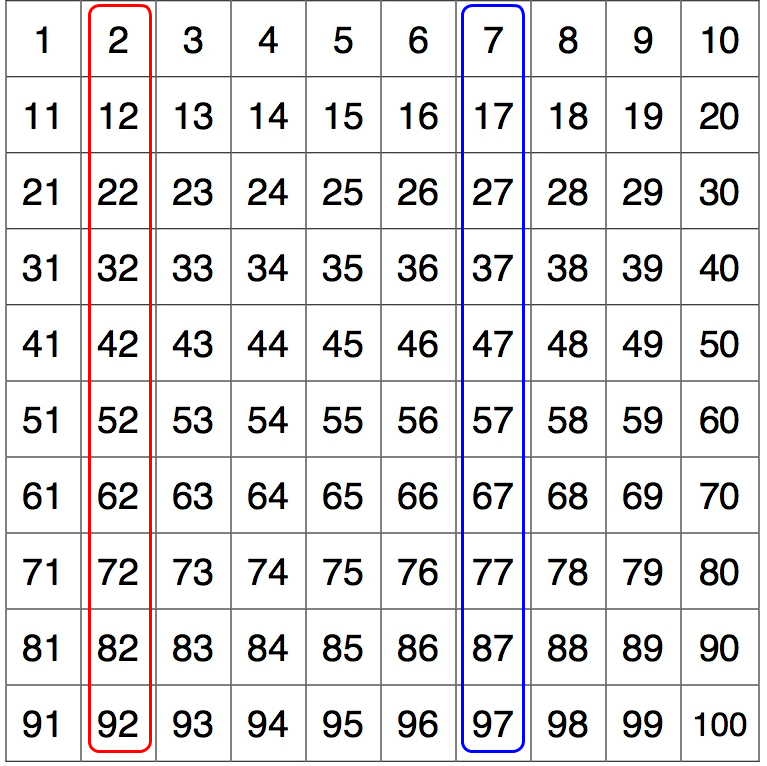Add multiples of 10's to single digit numbers
To add multiples of $10$10 to a single digit number we need to think about how many "steps" we'll need to take to increase our value.
For $3$3 + $20$20 we can start at the number $3$3 and increase by $2$2 jumps of $10$10 because $20$20 means there are $2$2 tens. Our first jump will take us from $3$3 to $13$13 and our second jump from $13$13 to $23$23. So $3+20=23$3+20=23.
Watch this video below to see how it's done.
As you saw in the video, we can use jump counting to count up by tens. You may also like to add numbers using a vertical algorithm, so you can line up the place value columns. For example, if I wanted to solve $80+9$80+9, I could write:
| Tens | Units | |
|---|---|---|
| + | $8$8 | $0$0 |
| $9$9 | ||
| = | $8$8 | $9$9 |
So $80+9=89$80+9=89
Add the units FIRST, then the tens.
Patterns when Counting Up By Tens
You may have noticed a pattern when you were jump counting by 10s. When we're counting up by tens, we're adding one $10$10 every time. That means that only the digit in the tens column will change, never the units. This grid shows the pattern if we count up by tens.

So if we start at $2$2 and count up by tens, the pattern goes up $2,12,22,32,42,52$2,12,22,32,42,52 and so on. What number would come after $92$92?
Now you try completing the pattern starting at $7$7.
Worked Examples
Example 1
What is $10+2$10+2?
Example 2
What is $70+2$70+2?
Example 3
Complete the pattern by adding $10$10 each time.
$8$8, $\editable{}$, $\editable{}$, $\editable{}$, $\editable{}$, $\editable{}$